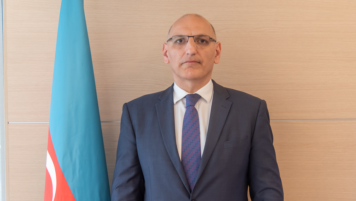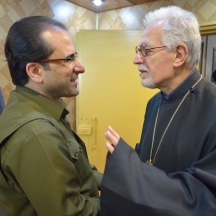By Alin K. Gregorian
Mirror-Spectator Staff
WASHINGTON — Archbishop Vicken Aykazian, Diocesan Legate and ecumenical director, took part in a delegation of church leaders visiting Iraq from January 20 to 24. The visit was organized by the World Council of Churches (WCC) and included meetings with political leaders, United Nations representatives, humanitarian aid workers, refugees and local Christian leaders in Baghdad and the northern Kurdistan region.
The delegation stressed the importance of preserving Iraq’s cultural and religious diversity and called on the international community to stabilize and rebuild communities affected by war.
Aykazian was pessimistic about what he saw in Iraq. The humanitarian crisis in Iraq escalated when the Islamic State captured Sinjar, Mosul, and the Nineveh Plain in 2014. Millions of people have been displaced, and the country’s Christian population continues to decline as families seek ways to relocate abroad.
He predicted with a heavy heart that there won’t be any more Christians in the country in the next 10 years.
“People are hopeless,” he lamented.









